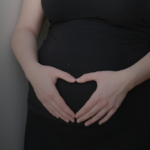While postpartum depression (PPD) is typically considered to be a woman’s illness, a number of studies have suggested that, although men do not experience any of the dramatic physiologic or hormonal changes that go along with pregnancy, new fathers may also suffer from PPD. The most recent study was a meta-analysis published in the May 19th issue of the Journal of the American Medical Association.
Paulson and colleagues reviewed a total of 43 studies involving 28,004 participants – fathers with documented depression occurring at any point between the first trimester of pregnancy and the first postpartum year. With regard to prevalence, the authors found a wide range of estimates across the various studies. Pooling the results, they estimated the prevalence of PPD in new fathers to be about 10.4%, a rate which is a bit lower than what has been observed in studies of new mothers.
The highest rates of paternal depression were observed between 3 to 6 months after delivery. Another important finding of this study was that postpartum depression in the father was more likely to occur when the mother was also depressed. While some have hypothesized that postpartum depression in the mother is a risk factor for paternal depression, none of the studies included in the analysis establish causation.
One of the significant limitations of the report is that it relies upon studies using different methodologies and measures of depression. However, this study indicates that not only are men vulnerable to depression during pregnancy and the postpartum period, this seems to be a relatively common problem.
While there has been an effort to identify postpartum depression in new mothers, most studies indicate that our ability to detect and effectively treat prenatal and postpartum mood disorders in new mothers is relatively poor despite multiple contacts with health care providers during pregnancy and the postpartum period. Although this study includes no information on treatment rates among those with paternal depression, it is likely that depression in this population with less access to health care providers is often overlooked and undertreated.
There have been multiple studies which demonstrate that maternal depression can negatively affect the development and well-being of young children. As a result of these findings, recent public policy has highlighted the importance of attending to the mental health needs of mothers; however, we cannot afford to neglect the impact of paternal depression. Several studies have indicated that paternal depression may place the child at risk for behavioral problems, as well as psychiatric illness, later on. This meta-analysis indicates that depression in new fathers is relatively common and deserves greater attention.
Ruta Nonacs, MD PhD
Paulson JF, Bazemore SD. Prenatal and postpartum depression in fathers and its association with maternal depression: a meta-analysis. JAMA. 2010 May 19;303(19):1961-9.
Read More:
Depression Affects New Fathers Too (New York Times)
Fact or Fiction: Fathers Can Get Postpartum Depression (Scientific American)
Postpartum Depression for New Fathers (ABC News)








When new mothers and fathers get up during the night to care for their baby, they expose their eyes to light. This will suppress the production of melatonin, the sleep hormone. When they return to bed they may have trouble sleeping. If this happens repeatedly it may lead to depression. It is the blue component in ordinary white light light that causes melatonin suppression. A study (Bennett) showed that by wearing eyeglasses that block blue light, or by using lightbulbs that do not produce blue light, women with postpartum depression recovered more quickly. Blue blocking eyeglasses and light bulbs are available on the internet.
Makes sense. Adjustment disorder is a common diagnosis for people who face challenges coping with major life changes. Becoming a Dad is certainly a major life change! Let’s take care of all the Dads so they can be the best fathers/spouses that they can be! I would look into parents of adopted children as well…
Thanks for pointing out this article. Here is reference for those who are interested in reading more.
It is an interesting finding, but it is important to note that this was a small pilot study. More research is required to determine if this is effective and if it is effective for depressive episodes of varying severity. Women with PPD should first consider traditional standard treatments before pursuing this option.
It would be very interesting to see what happens if we use this intervention in women who are at higher risk for PPD. Does it decrease the risk of illness?